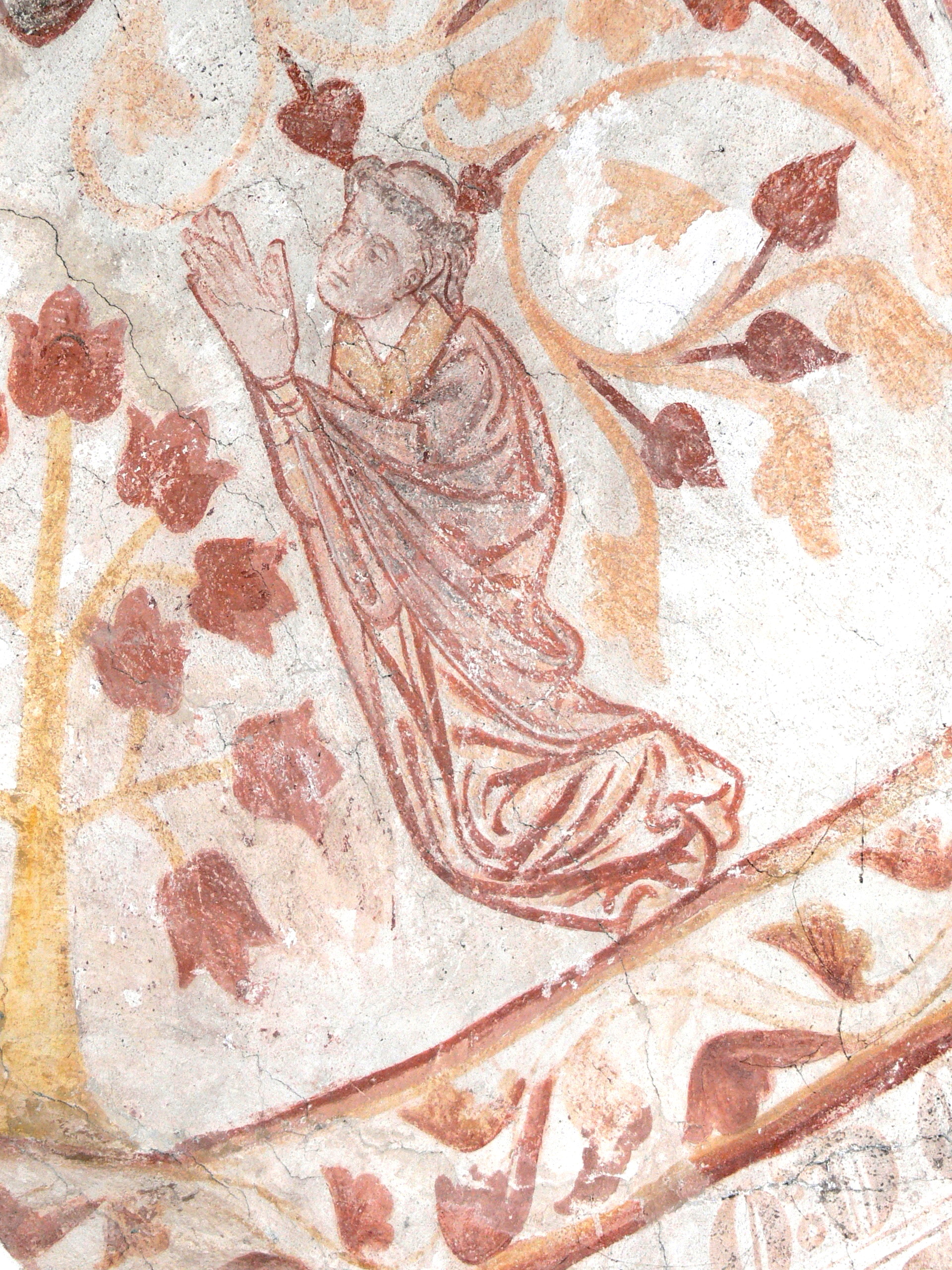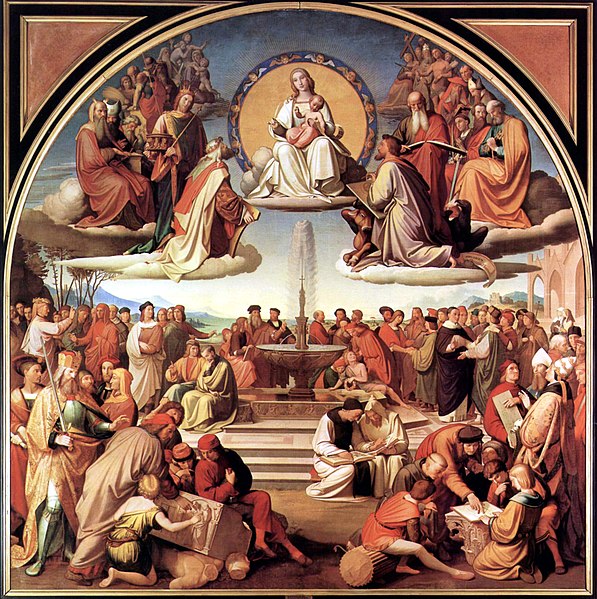 | |
| By Marie Ellenreider Kneides (Wikimedia Commons) |
For many of us the first brief glimpses of God came through His creation. It might have been through a beautiful sunset, a breathtaking stretch of countryside. It might have come through gazing upon a single blade of grass, an insect crawling through the undergrowth, or a caterpillar climbing up a rose bush. When your contemplation of creation enabled you to experience the Creator, you found yourself drawn inward. It was as if some soothing sedative stilled your mind and heart and made you mourn for your Maker, as for a lost friend. And yet this strange melancholy was as sweet as it was sad and you wanted it to go on and on to envelop you more and more completely. Once this had happened, you no longer needed to gaze at the scene before you, you could close your eyes and still savour the mysterious presence. The physical senses and the feelings and emotions that depend upon them have no part in what now becomes a predominantly spiritual experience.
When the experience vanishes, as it always will, the heart mourns for what has been lost. The restless heart that yearns for love unlimited is a commonplace experience for the young, who have been ‘touched’ in this way. When, like St Augustine they eventually begin to realise, or are taught, that the fullness of God’s love on earth is ultimately to be found in His Masterwork Jesus Christ, it is the beginning of a new departure in their spiritual journey.
St Jerome said that, “to be ignorant of the scriptures is to be ignorant of Christ,” so it is now the time to turn to the sacred scriptures, and follow the practice of the Desert Fathers and the most ancient and hallowed traditions of our faith, reading and re-reading everything that Jesus said and did in the Gospels. This is the only way to come to know and love the Father, made flesh and blood, in the Son, for as William of Thierry said, “You cannot love someone unless you know them”, but he adds, “You will never really know them unless you love them.”
Continue reading at David Torkington.




















